Thirty-nine maritime security professionals gathered at the Daniel K. Inouye Asia-Pacific Center for Security Studies July 7 to exchange perspectives on securing oceans in the Asia-Pacific region more effectively.
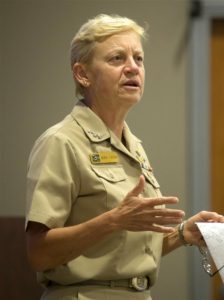
Vice Adm. Nora Tyson, commander of 3rd Fleet, based in San Diego,
Calif., provides remarks on inclusion of women in national security efforts at the “RIMPAC 2016 Maritime Security Symposium,” held July 7 at the Daniel K. Inouye Asia-Pacific Center for Security Studies.
Participants comprised primarily naval officers from eight of the 26 nations taking part in the Rim of the Pacific 2016 exercise centered at Joint Base Pearl Harbor-Hickam, Hawaii, and underway in the waters and airspace around the Hawaiian islands. The event, titled “RIMPAC 2016 Maritime Security Symposium,” featured attendees from Australia, Canada, China, Colombia, India, New Zealand, Singapore and the United States.
“We took advantage of an opportunity where we knew many nations’ navies would be on the island, and they were going to be thinking about operational issues,” said symposium coordinator U.S. Navy Cmdr. Jonathan Odom, a DKI APCSS faculty member. Odom said the event reinforced RIMPAC’s multinational/cooperative approach to maritime security while introducing participants to the Center’s model of inclusive and respectful exchange of ideas.
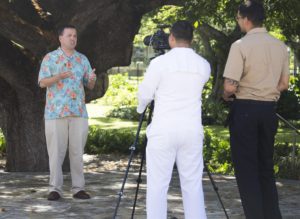
Cmdr. Jonathan Odom, Daniel K. Inouye Asia-Pacific Center for Security Studies faculty member, provides details to U.S. Navy news specialists on the July 7 RIMPAC maritime security symposium held at DKI APCSS. Odom was the Center’s coordinator for an event that enabled professionals taking part in the Rim of the Pacific 2016 exercise to share perspectives on increasing maritime safety in the Asia-Pacific region.
Odom led one of three primary topical discussions, focusing on the strategic importance of operational maritime safety. He addressed how relatively small, isolated incidents ¬at sea — such as a collision or an escalation of force resulting from miscommunication — can have profound, lasting effects on relationships between nations. He discussed how navies can implement international legal norms and safety standards internally to help prevent or mitigate negative incidents collectively, and solicited practical experiences from symposium participants on how each of their navies promote operational safety within their fleets.
“I thought it was great to have a RIMPAC representation here,” said Brad Kaplan, foreign policy advisor to the 3rd Fleet commander. “We talked about a number of productive and cooperative efforts…about the importance of international law and regimes in resolving many of the issues that are paramount in the Asia-Pacific area.”
The symposium opened with a panel discussion focused on the value of inclusion of women in security matters. Panelists included U.S. Navy Vice Adm. Nora Tyson, commander of 3rd Fleet, based in San Diego; DKI APCSS Director retired Lt. Gen. Dan Leaf; retired U.S. Navy Capt. Albert Shimkus, an associate professor at the U.S. Naval War College; Lt. Cmdr. Jacqueline Swinton, Royal Australian Navy gender advisor; and discussion moderator DKI APCSS professor Dr. Saira Yamin.
Panelists addressed implementation of U.N. Security Council Resolution 1325 on women, peace and security into national defense plans. UNSCR 1325 emphasizes the important role of women in security efforts, to include prevention and resolution of conflicts, and stresses their equal participation and full involvement in efforts to build and sustain peace and security.
Participants also engaged on the topic of naval support to civilian maritime law enforcement, a session led by DKI APCSS associate professor Kerry Lynn Nankivell.
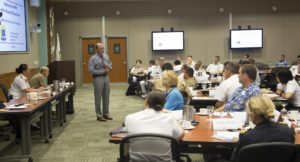
Al Shimkus, an associate professor with the U.S. Naval War College takes part in a women, peace and security panel during the July 7 RIMPAC
symposium at the Daniel K. Inouye Asia-Pacific Center for Security Studies.
DKI APCSS is a Department of Defense institute that addresses regional and global factors impacting the Asia-Pacific security environment. Military and civilian representatives from the United States and Asia-Pacific nations participate in a comprehensive program of executive education, professional exchanges and outreach events, both in Hawaii and throughout the Asia-Pacific region.
The Center supports the U.S. Pacific Command by developing and sustaining relationships among security practitioners and national security establishments throughout the region. DKI APCSS’ mission is to build capacities and communities of interest by educating, connecting and empowering security practitioners to advance Asia-Pacific security. It is one of the Department of Defense’s five regional security studies centers.
Since opening in 1995, more than 10,000 alumni representing over 122 countries and territories have attended DKI APCSS courses and workshops.
-END-


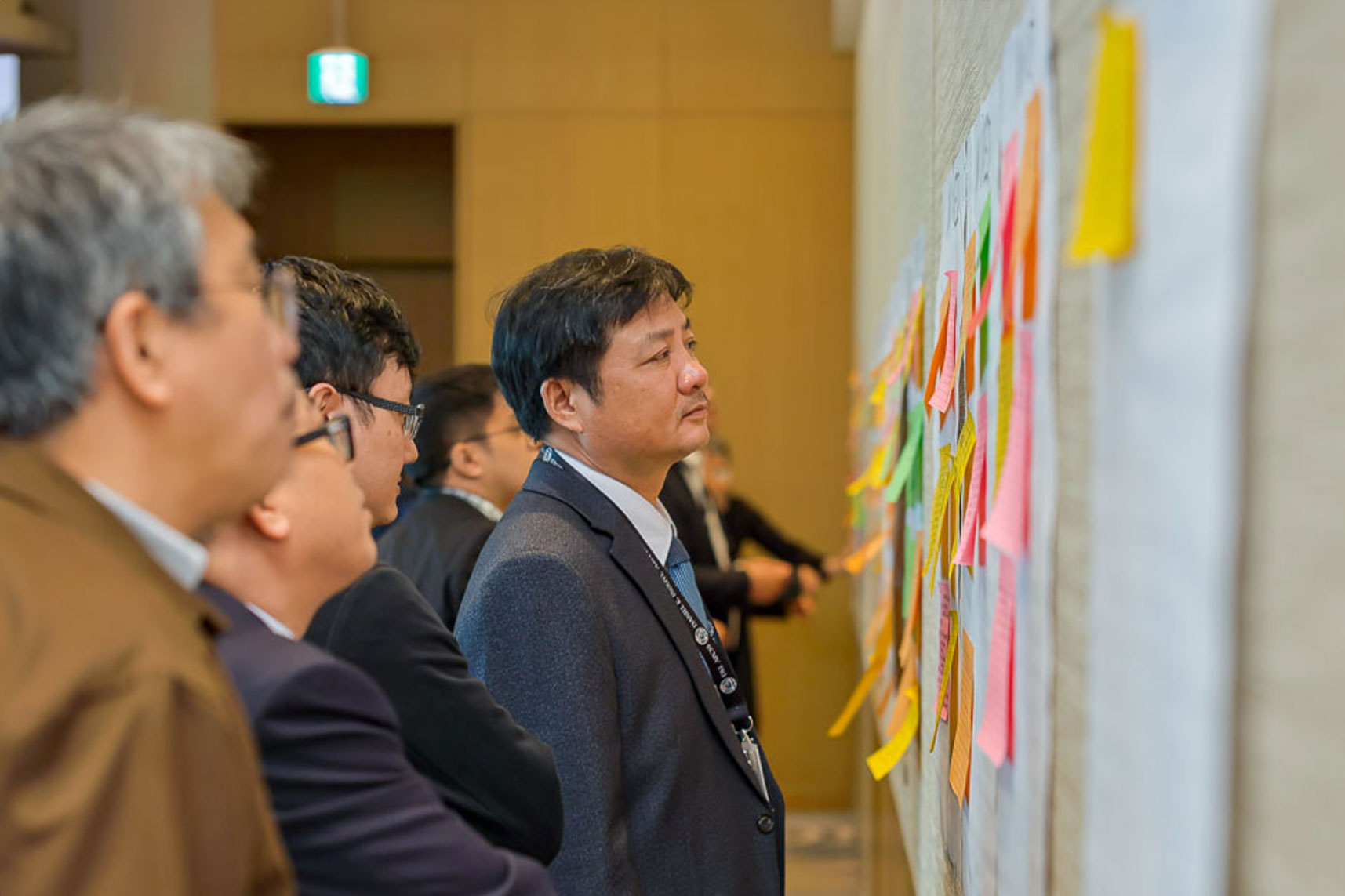
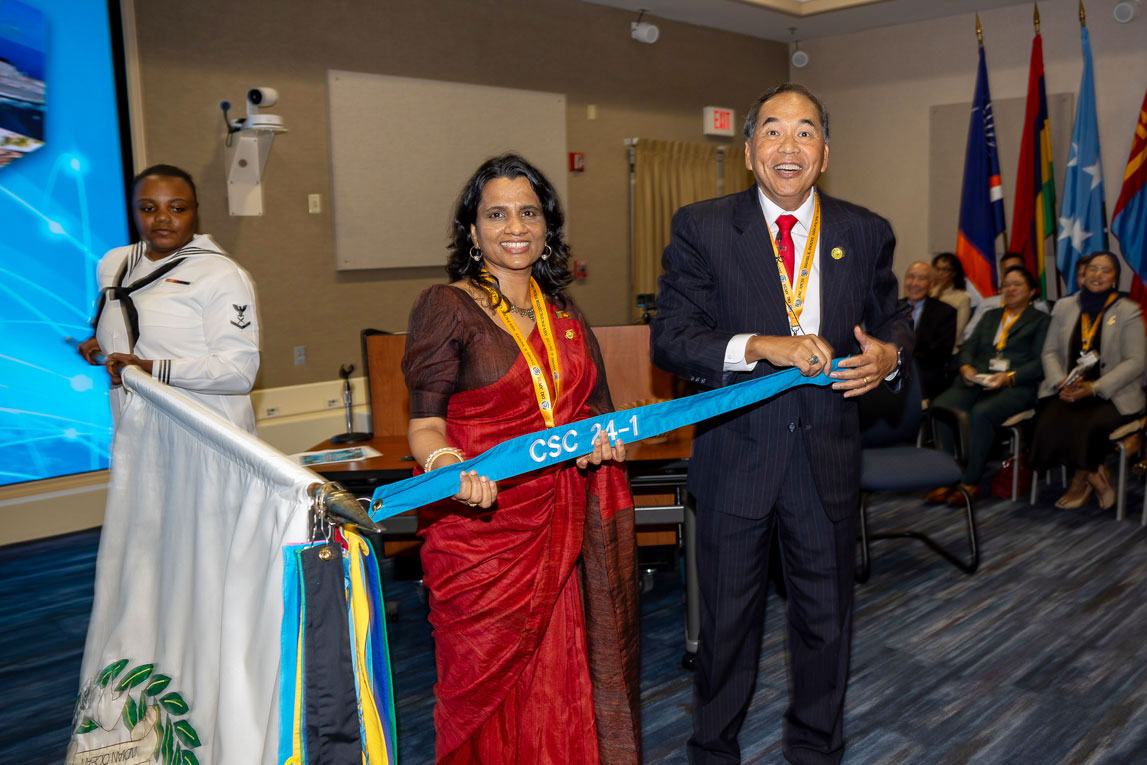
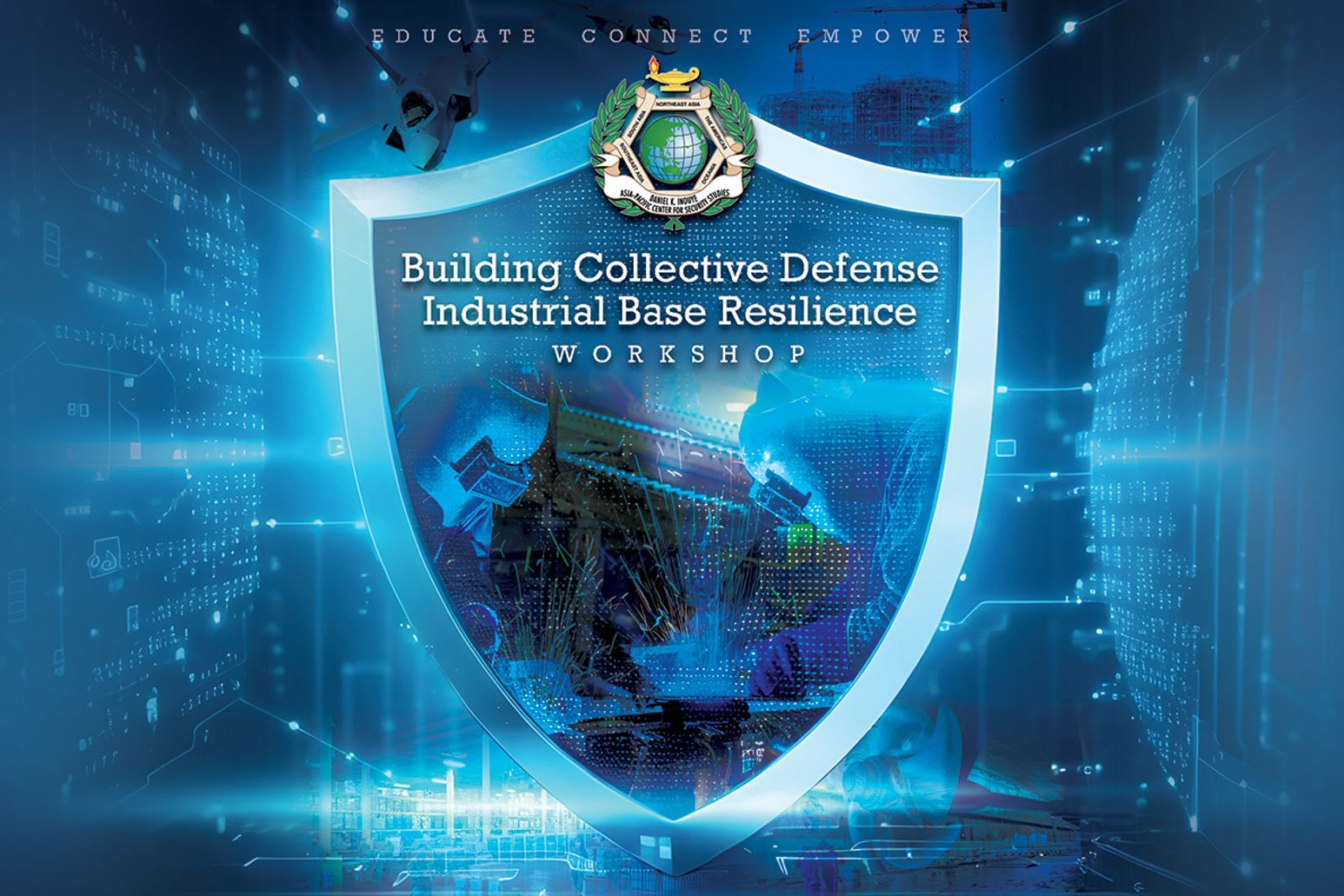




Leave A Comment